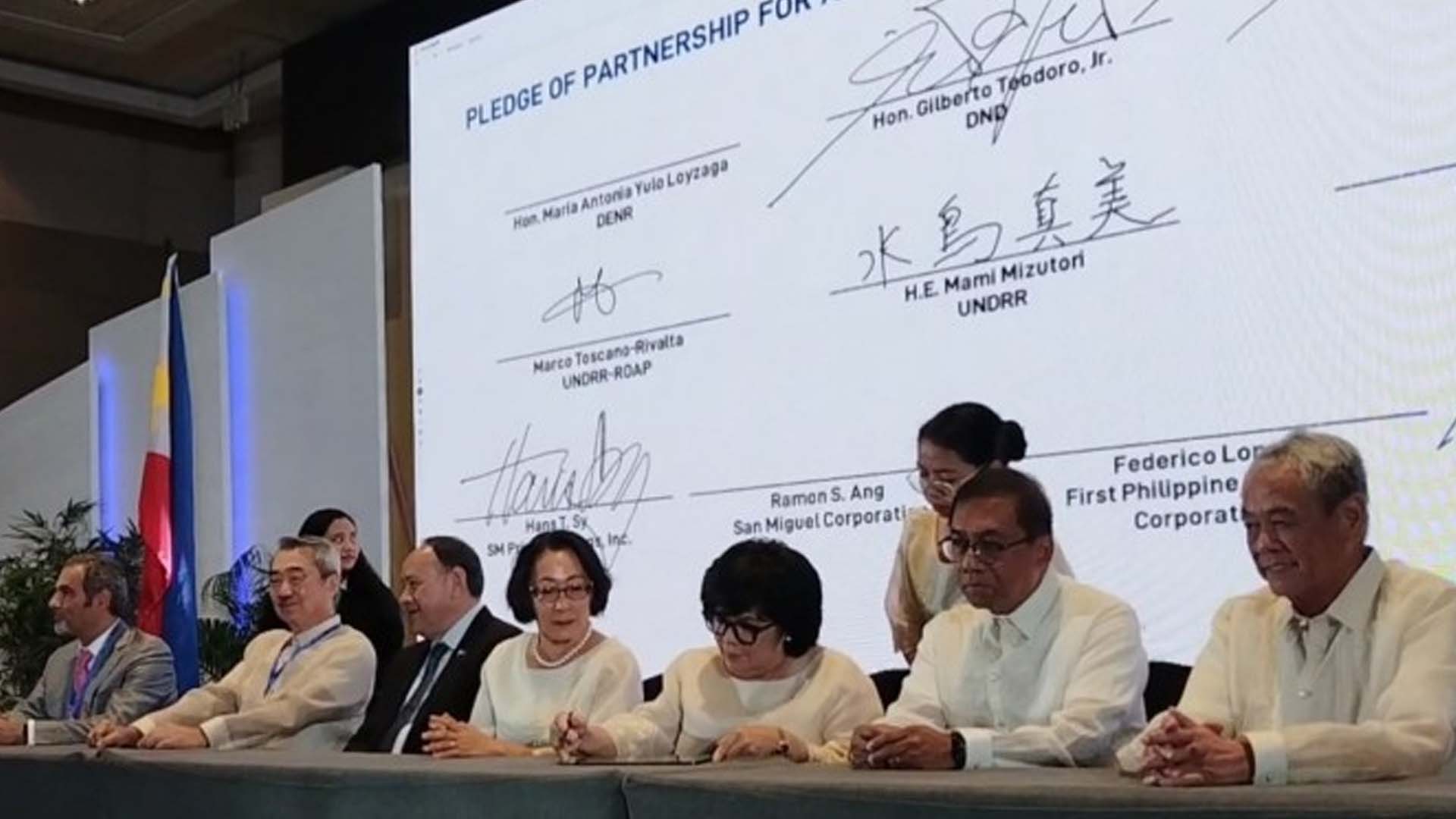The Philippines is set to host the Asia-Pacific Ministerial Conference on Disaster Risk Reduction (APMCDRR) in Manila from Oct. 14 to 17 next year.
The biennial conference was launched on Friday in Pasay City, coinciding with the celebration of the International Day for Disaster Risk Reduction.
United Nations Secretary-General for Disaster Risk Reduction Mami Mizutori joined Defense Secretary Gilberto Teodoro and Environment and Natural Resources Secretary Maria Antonia Yulo Loyzaga in formally launching the event.
“The APMCDRR 2024, hosted by the Philippines, is the first conference in the region after the Midterm Review of the Sendai Framework, from which a long list of challenges emerged,” Mizutori said during her speech.
“For example, there is this issue on how we can better localize risk reduction and engage local governments — this will be discussed during the conference in Manila.”
The APMCDRR is the primary regional platform that brings together global leaders to monitor, review and enhance cooperation for the implementation of the Sendai Framework for Disaster Risk Reduction 2015 to 2030 at the regional level as convened by the United Nations Office for Disaster Risk Reduction.
Being a hazard-prone country, Mizutori noted that the Philippines is a role model for the region with its commitment to disaster risk reduction and management.
The UNDRR said hosting the largest conference on disaster risk reduction in the region is a unique opportunity for the region to exhibit its role in the region as a leader in public-private partnerships for climate and disaster resilience.
The same is true for the application of science and technology and nature-based solutions, and the promotion of resilient investments and infrastructure, it said.
Meanwhile, Loyzaga said the opportunity and responsibility of hosting the conference is a testament for the country’s efforts to implement science-informed, public-private partnership, and whole-of-society approach to the complex risks it encounters.
“The challenges we face are complex and they do not affect everyone equally. They require a convergence of efforts, synergies from across sectors so that we are able to respond to each of the different exposures and vulnerabilities,” she added.
She noted that President Ferdinand R. Marcos Jr. in his two State of the Nation Addresses expressed his awareness of the impact of climate change and other natural hazards on the economic growth and development.
“In the last state of the nation address, he actually stated that climate change would now be integrated in every area of government policy and action programs,” she said.
“He unhesitatingly agreed for us to host the conference, he believes there’s a lot that we may be able to offer but also that can learn very much from the experience of the countries in the Asia Pacific Region,” she noted.
During the launch, representatives of national government agencies, private sector and development partners signed a partnership agreement for the hosting of the 2024 APMCDRR.
The conference will be organized around the pillars of disaster risk reduction financing, gender responsive and inclusive disaster risk governance, and localization and urban and rural resilience.
It is expected to draw over 3,000 high-level international delegates from the region. (PNA)





















